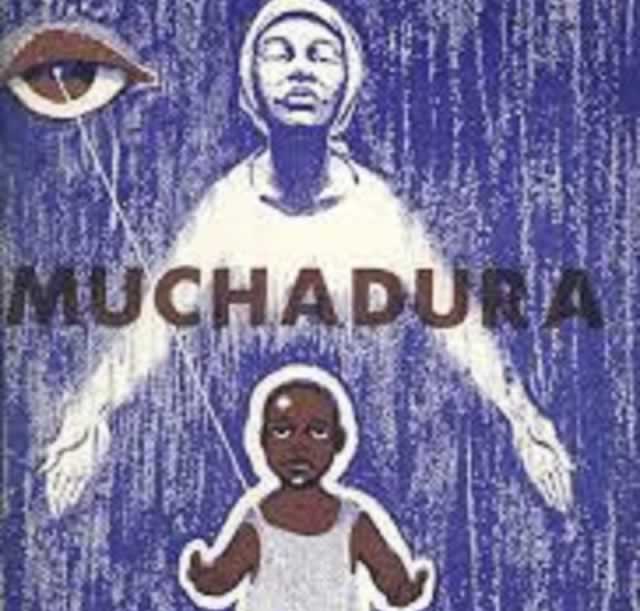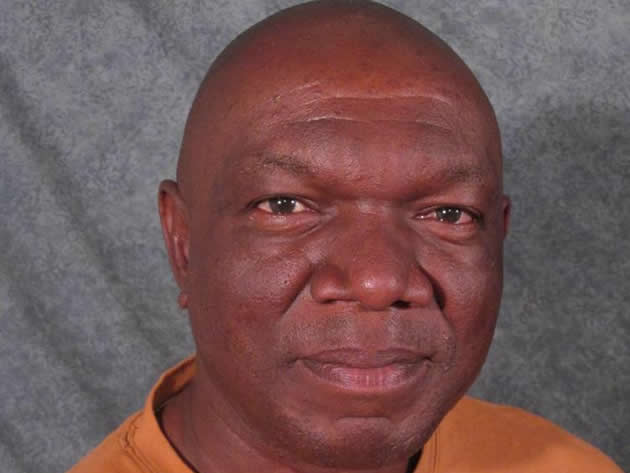Ngozi: An African reality. . . ensuring social justice and fairness


“Muchadura” a novel by Father Emmanuel Rebeiro chronicles the havoc wreaked by ngozi, (avenging spirit) on a family
Pathisa Nyathi Review Correspondent
African spirituality, sometimes referred to as African Traditional Religion used to pervade all aspects of life. Even the concept of ubuntu/hunhu, the social, political and economic philosophy, is steeped in African spirituality. It is imperative therefore that in order to fully appreciate the phenomenon of ngozi one is au fait with some basic tenets of African spirituality, worldview, cosmology and philosophy.
We have stated it before that there has been a tendency to dwell on African cultural practices without interrogating the underlying cosmological underpinnings. In other words, what was being attended to were the ‘what?’ and ‘how?’ aspects without attempting to answer the question ‘why?’ which seeks to unearth the underlying meaning.
This partly explains why some people have been quick to condemn African cultural practices. Many do so from a point of ignorance or ignorant mischief. In dealing with the social phenomenon known as ngozi we need, from the outset, to deal with some of its underlying principles and concepts. Herein lies the raison d’ etre for the practice. Ngozi, a social phenomenon common among the Shona people of Zimbabwe, has been interpreted as the avenging spirit
Traditional Africans posited that reality is made up of material or physical and spiritual realms. Human beings themselves are constituted in the same manner. They are both matter and spirit. Life is an enduring reality that merely transforms from one form to the other. Death, so argue the Africans, was not the end but an important transition from material and physical existence to a completely spiritual reality. It comes as no wonder therefore that death is attended to by numerous rituals all calculated to assist the enduring spirit to enter a higher realm.
Spirit, it is argued, has power over things material. As a result, the ancestral spirits are more powerful than human beings. The same ancestral spirits take a keen interest in the affairs of their living progeny. This is important in understanding the operations of ngozi. As pointed out above, ubuntu/hunhu has many values and principles all intended to condition and inform human interactions and enforce cordial relations. Justice and fairness are cornerstones of African jurisprudence.
Interpersonal, inter-group and inter-community relations are guided by some dynamic equilibrium, which allows for co-operative effort and mutual assistance. Where such social equilibrium has been disturbed, measures are taken to restore it. Conflict prevention, management and resolution are instituted to restore lost equilibrium. Redemption, as a way of dealing with the errant and the deviant, seeks to usher restorative measures to ensure positive and collaborative relations within communities.
The one pursuit that Africans have devoted their energies to is attainment of continuity of the human race. This is one way of saying they seek eternity, infinity, immortality or simply, fertility.
They seek to extend and expand their lineages. Ukwanda, kuwanda is a much sought after achievement. The Ndebele have a saying, “Ukwanda kwaliwa ngumthakathi” with a direct Shona equivalent, “kuwanda kwakarambwa nemuroyi” The saying translate to mean witches negate the pursuit to multiply. Therefore, lineages will fight any attempts that seek to reduce lineage extension and expansion.
Another important characteristic of ubuntu/hunhu is that the group is the one that lends humanity to an individual. The group, as a result, is more important that the individual. I am because you are. A lineage group is tied together by a common bond of blood; “ndeveropa”, “ngabegazi.” This is a bond with far reaching implications. When one member of the group is guilty the whole blood group is guilty. It is for this reason that members of a group take a keen interest in the affairs of one member of the group; that individual can invite serious consequences upon all of them. The Ndebele proverb, “Zonelwa mvu nye,” encapsulates the idea. One sheep spoils it for the entire flock. The group justifiably demands good behaviour from all its members to avoid catastrophe that may befall all of its members.
At this juncture I will link the above precepts to the concept of ngozi. Its basic tenets and principles have been laid bare beyond the mechanical narration of the how and what. When one person, who happens to belong to a blood group, kills another person, who also belongs to a blood group albeit a different one, the latter group has suffered a loss in terms of extending and expanding their blood line. The killing is not segregated according to western ideology where there is murder and accidental blood. The spilling of human blood, whether accidental or in cold blood will result in ngozi.
The issue is not just between two individuals and the state. Relations between the two family groups have been damaged, there is disequilibrium. Cooperative work and mutual support between the two groups have been curtailed. The resulting tension is synonymous with conflict albeit in the absence of (physical) war.
The departed spirits of the deceased join forces with the specific spirit of the one who was killed to wreak havoc on the blood group of the perpetrator. The group, by virtue of blood links with the aggressor, is guilty and faces death in the hands of the avenging spirit. It is important to appreciate what the avenging spirit seeks to achieve-restorative justice. It does not kill out of spite or vengeance.
It seeks justice and fairness which, in this particular case, translates to the guilty group taking socially agreed measures to compensate the aggrieved family or group.
I have said before that ngozi cannot kill non-believers. By this I mean a group may actually perish as a result of the actions of an avenging spirit. However, because the members of the group do not know about the phenomenon called ngozi they will not link the death of their members to ngozi. Something else will be said to be responsible for the individual deaths of the members. Where the people believe in ngozi measures will be taken to find out why they are dying. Those in the community with diagnostic capacities will identify the cause of death, the culprit concerned and the measures to be taken to stop the deaths.
It is at this point, sometimes after the deaths of many family members that the members gather to deliberate on the issue with a view to dealing decisively with the challenge. All feel obliged to do something as none is safe. They will contribute whatever is needed in order to save their own families which are guilty on account of blood connection with the killer. As pointed out above, the family that lost an individual has been deprived of the potential to extend and expand its blood line.
That particular deficiency was corrected or balanced through the aggrieved family being offered a girl in marriage by the aggressor’s family. The girl was being given in marriage so that when biologically mature she would produce children that would otherwise have been produced by the deceased. It was not a love affair between two individuals. After all, marriages were not about love. Rather, they were about procreation and the guarantee of continuity of a lineage.
King Lobengula, like his father before him, married his senior queen from the nation of Gaza across the Save River. He had never seen the woman who became his queen before she was presented to him by Chief Lotshe Hlabangana who was in charge of the Induba village.
The Ndebele also lived in mortal fear of this social phenomenon which they called ingwendela. One Chief Maqhekeni Sithole is said to have been sent by King Mzilikazi to cut or pierce the lower earlobes of the people under Chief Chivi.
That would have translated into spilling the blood of those whose ears lobes he was going to perforate.
That, in Sithole’s view, was going to be tantamount to inviting the avenging ngozi spirit on his charges. Sithole decided he would not proceed as instructed.
He hatched a plan-he was going to tell the king he had run out of provisions. Indeed, he did just that and the king accused him of practicing discrimination-iNkethabetshabi which became the name of a place and later a township in Bulawayo.
Restorative justice was attained after the activities of the avenging spirit. More importantly, the community lived in mortal fear of ngozi. Would- be murderers were deterred from committing murder in fear of the dire consequences.
Members of the lineage made sure none of them invited the wrath of ngozi upon them. Life was taken to be sacrosanct and thus respected. Ngozi was thus a social enforcer of justice and fairness and kept everybody on the straight and narrow path.
To understand and appreciate it, it is best done when the cultural context and the cosmological underpinnings are taken into cognisance.
Otherwise we risk behaving like heavenly judges on earthly beings going about their earthly matters which smacks not only of arrogance but also imperialistic egotism.
Pathisa Nyathi is an Arts and Culture expert specialising in African Thought. The author of more than thirty books on history and Zimbabwean culture founded Amagugu International Heritage Centre in Matobo District and is one of the organisers of My Beautiful Home-Comba Indlu Ngobuciko Project in Matobo District. Feedback: [email protected]










Comments